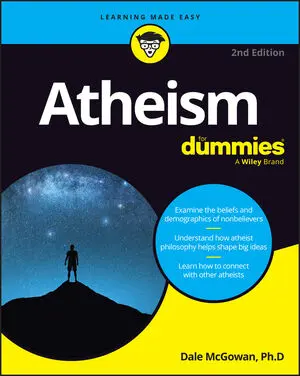From a country of atheist Lutherans to a province of atheist Catholics, there are some of interesting spots on the globe for religious disbelief. They also have different flavors of atheism.
Atheism in Scandinavia
Norway, Denmark, and Sweden are three of the four least religious countries on Earth, but you wouldn’t know that on the surface.
In fact, nearly 80 percent of Norwegians belong to the Lutheran Church of Norway, for example, but 72 percent say they don’t believe in God. Only 3 percent attend church more than monthly, and most don’t attend at all. Membership has more to do with cultural identity than belief.
Scandinavians tend not so much toward outright atheism as apatheism, meaning religion is just off the radar. Sociologist Phil Zuckerman says that when he asks a Swede, Norwegian, or Dane about their religious beliefs, they tend to look perplexed, like someone had asked for the karmic profile of their crown chakra.
More than 80 percent said religion is unimportant in their daily lives. And by almost every measure, they’re the most ethical, orderly, nonviolent societies in the world.
Atheism in Québec
Québec was historically the most religious of the Canadian provinces by a mile. The French permitted only Catholics to settle what was then called New France, so it isn’t surprising that as late as the 1960s, 83 percent of the population was still Catholic.
In the early 21st century, Québec is still about 83 percent Catholic — but it’s now the least religious province by a wide margin. It has the lowest regular church attendance of all provinces (10 percent) and the lowest percent of people who consider themselves religious at all (22 percent, compared to 36 percent for all Canada).
So how do you go from the most religious province to the least religious without losing any Catholics? It’s simple. Well no, it’s not — these things never are.
Surrounded by English-speaking Protestants, French Canadians are eager to keep their unique identity — and “French” goes with “Catholic” in Canada even more than it does with “fries” in the United States. Yet educated Catholics are among the most likely of all religious identities to quit believing. But in Québec, you can’t throw off Catholicism without also throwing off your Frenchness.
So even as they’ve stopped believing, most Catholic Québécois have remained “cultural Catholics.” There’s no better proof of the change than a 2002 referendum to switch the provincial school system from Catholic to secular. The referendum passed easily and with very little fuss.
Atheism in the United States: The Unchurched Belt(s)
Most people know about the Bible Belt. Journalist H.L. Mencken first came up with that description in 1924 for the Southeastern quarter of the United States, a place with about 2.5 Baptist churches per person.
Less well known — and much less catchy — is the Unchurched Belt, a region along the Pacific coast so named in 1985 for having the lowest church attendance and lowest professed belief in the country.
The Unchurched Belt originally included Washington, Oregon, and California, all with 22 to 25 percent nonreligious populations. But by 2000, California had become more religious (mostly because of an increase in the Catholic Hispanic population) while New England became even less religious than it was before. The top US states for nonreligious identity in 2012 are
Vermont (34 percent)
New Hampshire (29 percent)
Wyoming (28 percent)
Alaska (27 percent)
Maine (25 percent)
Washington (25 percent)
Nevada (24 percent)
Oregon (24 percent)
So the “Bible Belt” isn’t really any kind of a Belt at the moment. Stuck on opposite ends of the continent, the two relatively secular zones look more like the Unchurched Earring-and-1980s-Mobile-Phone.





